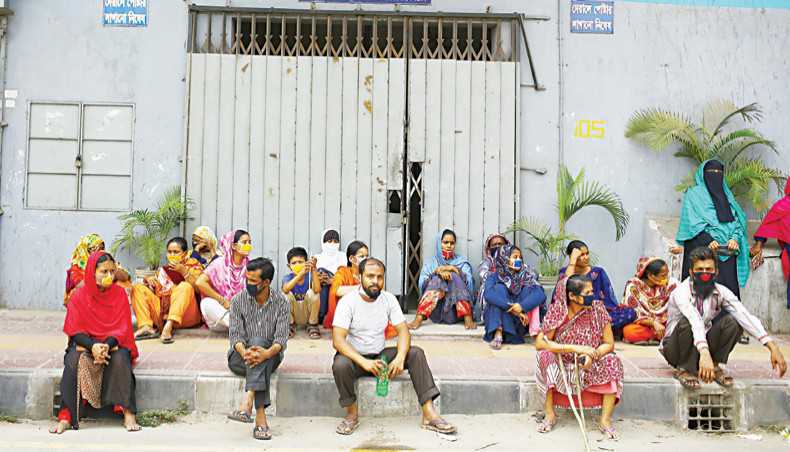92 per cent plainland ethnic minorities in Bangladesh see income fall

Image collected
The coronavirus epidemic has impacted the lives and livelihoods of 92 % or 18.4 lakh plain land ethnic minority people in Bangladesh by reducing their income, revealed a report released on Thursday by Indigenous Peoples Development Services.
Half of a million of the influenced persons lost their jobs once and for all and became new poor following the coronavirus crisis emerged in the united states in March, said the analysis conducted by IPDS in colaboration with Minority Rights Group.
‘The most alarming finding is that the income of indigenous persons keeps heading down,’ said Bangladesh Adivasi Forum general secretary Sanjeeb Drong while revealing the analysis findings within an online meeting.
He said that after losing land to grabbers through the years, the majority of the 20 lakh ethnic minorities in plain land had to take insecure jobs, namely jobs of day labourers, security guards and beauticians, where they had to totally rely on other persons for their livelihood.
Many are house helps while some as drivers or salesmen or readymade garment personnel and almost all of them are experiencing income fall ever since the coronavirus crisis has emerged, he said
The analysis was conducted on 1,205 ethnic minority families representing 35 communities surviving in 28 districts.
Most of the ethnic minorities have previously returned home from Dhaka after losing their jobs.
Some of them need to sell property or other valuables to pay house rents before leaving Dhaka houses.
The study recommended for introducing special financial incentive for ethnic minorities by the federal government, giving soft loans to the new poor, employing 20,000 ethnic minority youths partly time jobs and raising the amount of ethnic minority beneficiaries acquiring Tk 2,500 from the government to 50,000 from only 2,000.
A motivation for Garo women working as beauticians ought to be introduced, recommended by the study.
Nagarik Udyog leader Zakir Hossain said that they conducted a report with similar findings that showed many ethnic minority people were mortgaging their crop in advance or availing high interest loans from loan sharks to avoid starving amid the pandemic.
Gram Bikash Kendra director Sarah Marandy said that they caused 14,000 families in Rajshahi and Rangpur where malnutrition was acute and literacy was poor even prior to the COVID-19 situation.
Source: https://www.newagebd.net
Tags :
Previous Story
- The world's most popular tourist cities may have...
- US investors urged to create Covid-19 vaccine plants...
- NOAB urges govt to the stand by position...
- Property sector becoming more optimistic of a rebound
- IOM: 70% Bangladeshi returnee migrants battle to find...
- Coronavirus paving the way for higher inflation in...
- Ceramic industry breathes easier as sales start picking...
- How power majeure influences the RMG industry